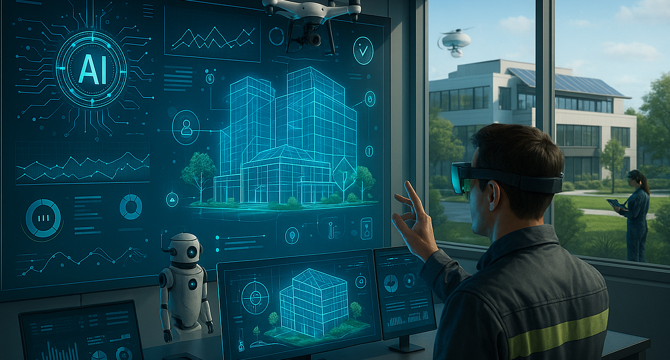Medium
3w
268

Image Credit: Medium
Harnessing Artificial Intelligence for Transformative Facility Management
- The article discusses the shifting emphasis of artificial intelligence technologies in facility management towards more complex, integrated capabilities.
- Advanced artificial intelligence applications in facility management include dynamic space optimization, intelligent security operations, and hyperpersonalized occupant experiences.
- AI is crucial for optimizing space usage, security operations, and creating personalized occupant experiences based on real-time data analysis and predictive models.
- Facility managers integrating AI must address challenges such as data privacy, bias, and system reliability to ensure successful implementation.
- AI-driven space optimization enhances operational effectiveness, occupant well-being, and productivity by creating environments tailored to occupant needs and work patterns.
- Intelligent security operations utilize AI to proactively monitor real-time video streams, access control logs, and data from various sensors for anomaly detection.
- Hyperpersonalization through AI offers tailored occupant experiences by analyzing environmental data and individual preferences, enabling adjustments to HVAC, lighting, and other systems.
- The integration of IoT, BIM, and Digital Twins with AI in facility management enhances predictive maintenance, energy efficiency, and operational effectiveness.
- Challenges in implementing advanced AI include data integration, cybersecurity, skill development, ethical guidelines, and organizational changes.
- AI's potential in facility management lies in creating adaptive, predictive, and human-centric environments that prioritize safety, comfort, productivity, and resource efficiency.
- Successful AI implementation requires a strategic approach that balances technological advancements with human-centered needs, ethical considerations, and ongoing skill development.
Read Full Article
16 Likes
For uninterrupted reading, download the app